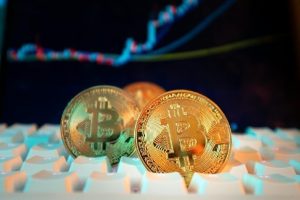Diddy’s Prison Experience: Rumors and Denials
In the wake of recent media attention surrounding Sean “Diddy” Combs’ incarceration, his representatives have stepped forward to vehemently deny reports that the music mogul was caught consuming homemade prison alcohol. According to TMZ’s November 7 report, Diddy allegedly created a fermented concoction using Fanta, sugar, and apples at the Federal Correctional Institution Fort Dix in New Jersey where he is currently serving his sentence. This claim was quickly addressed through Diddy’s official X account in a now-deleted post stating, “The rumors claiming Mr. Combs was caught with alcohol are completely false. His only focus is becoming the best version of himself and returning to his family.” A spokesperson reinforced this denial, emphasizing that Diddy “has not violated any prison rules” and that “his sobriety and self-discipline are priorities” that he takes seriously. The representative acknowledged that as this is only Diddy’s first week at FCI Fort Dix, rumors are likely to surface throughout his incarceration, and requested that the public and media afford him “the benefit of the doubt, the privacy to focus on his personal growth, and the grace to move forward in peace.”
The 55-year-old music industry titan was recently transferred to FCI Fort Dix, a low-security federal prison housing approximately 4,000 male inmates, as confirmed by the Federal Bureau of Prisons on October 30. This transfer marks a significant shift in Diddy’s incarceration journey as he continues to serve his four-year sentence on two charges of transportation to engagement in prostitution. According to the Bureau of Prisons, Diddy is scheduled for release on May 8, 2028, though this date could potentially move earlier if he maintains good behavior or completes certain rehabilitation programs during his time behind bars. The FCI Fort Dix facility represents a different environment from his previous place of incarceration, the Metropolitan Detention Center in Brooklyn, where he had been held since his initial arrest in September 2024 on charges including sex trafficking.
Diddy’s legal troubles culminated in a trial that began in May 2024 and concluded on July 2 with a mixed verdict. While he was found guilty on the prostitution-related charges that led to his current sentence, he was cleared of two counts of trafficking and one count of racketeering conspiracy. Throughout these proceedings and continuing into his incarceration, Diddy has maintained his innocence regarding the more serious charges, though his sentencing hearing on October 3 resulted in a 50-month prison term (just over four years), with credit for the year he had already spent behind bars. Additional penalties included a $500,000 fine and a requirement to complete five years of supervised release following his imprisonment. The sentencing judge, Arun Subramanian, offered words that balanced accountability with hope, telling Diddy, “There’s a true path to redemption here. What went wrong and what can be made right,” encouraging him to “make the most” of this “second chance.”
Prior to his sentencing, Diddy submitted a letter to the court that reflected a tone of personal responsibility and regret. “I take full responsibility and accountability for my past wrongs,” he wrote in the letter, which was obtained by Us Weekly on October 2. The Bad Boy Records founder acknowledged the difficulty of the past two years, stating, “This has been the hardest two years of my life, and I have no one to blame for my current reality and situation but myself.” His expression of remorse extended beyond mere apology: “I am so sorry for the hurt that I caused, but I understand that the mere words ‘I’m sorry’ will never be good enough, as these words alone cannot erase the pain from the past.” This sentiment indicates at least a public acknowledgment of the impact of his actions, even as he continues to dispute some of the allegations against him.
The denial of the prison alcohol incident comes at a critical juncture in Diddy’s incarceration, as he begins to adjust to his new environment at FCI Fort Dix. His representatives seem keen to establish a narrative of reform and personal growth, rather than one of continued rule-breaking or defiance. The statement that “his only focus is becoming the best version of himself and returning to his family” suggests an attempt to reframe public perception of the once-celebrated music producer and entrepreneur. How this narrative will evolve throughout the remainder of his sentence remains to be seen, particularly as the media continues to scrutinize his time behind bars. The call for privacy and “the grace to move forward in peace” from his representatives highlights the challenging intersection of celebrity, public interest, and the prison system.
As Diddy serves his sentence, the broader context of his case continues to resonate within conversations about accountability in the entertainment industry. From his rise as one of hip-hop’s most powerful figures to his current status as an inmate at FCI Fort Dix, Diddy’s journey reflects complex questions about power, responsibility, and redemption. While his legal team works to manage his public image during this period of incarceration, the coming years will reveal whether the path to redemption mentioned by Judge Subramanian is one that Diddy truly embraces. For now, as the denial of the prison alcohol rumors indicates, the immediate focus appears to be on navigating the early days of his sentence while attempting to maintain some control over his public narrative—a challenging proposition for anyone serving time, but particularly so for someone who has lived most of his life in the spotlight.














